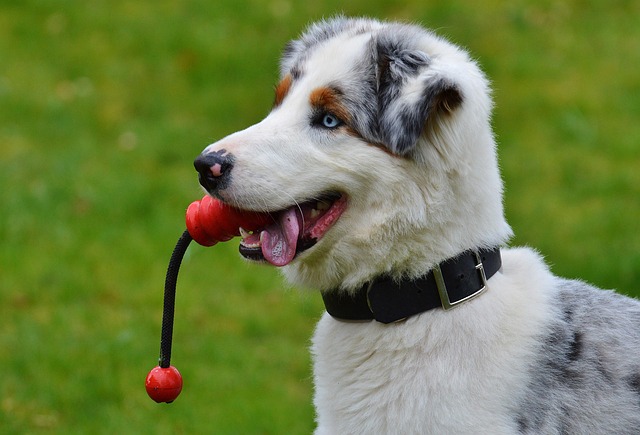
What can I give my dog for Tracheobronchitis?
When hearing a dog coughing violently, with a heavy and rapid breathing sound, and seeing its once lively figure becoming listless, the owner's heart tightens with worry.
When I learned that my dog was suffering from hypercalcemia, I was immediately filled with worry and anxiety. Hypercalcemia, a disease that sounds a little strange but may cause great pain to dogs, has become our most worrying problem at this moment.
The calcium in the dog's body should be maintained in a stable and appropriate range, like the gears in a precision clock, running in an orderly manner to ensure the normal functioning of the dog's organs and systems. But once the calcium level breaks through the normal limit, troubles will follow. Various potential diseases are often the culprits behind hypercalcemia. Some malignant tumors, such as lymphoma, and certain types of bone tumors, are like a group of wanton destroyers. Cancer cells will secrete substances that interfere with the normal metabolism of calcium, which will break the balance of calcium in the dog's body and cause the blood calcium level to rise steadily. The parathyroid gland, a small organ that silently controls the "power" of calcium metabolism on weekdays, will also cause the calcium content in the blood to increase uncontrollably if it fails and over-secretes parathyroid hormone. The kidneys, as the body's "filter", if damaged by disease and unable to filter and excrete calcium normally, calcium will continue to accumulate in the body, eventually causing hypercalcemia.
When we realize that a dog may be targeted by hypercalcemia, time is life, and it is urgent to take the dog to the veterinarian as soon as possible. The veterinarian will start a series of comprehensive and detailed examination processes. Blood tests, like a precise "periscope", can accurately measure the level of blood calcium, and can also detect other related biochemical indicators to help veterinarians understand the overall health of the dog's body. Imaging examinations such as X-rays and ultrasounds are like taking pictures of the inside of the dog's body, which can explore whether there are tumors or abnormalities of the parathyroid glands and kidneys. These examinations are crucial. They are the key basis for veterinarians to accurately determine the cause of hypercalcemia. Only by finding the root cause can an effective treatment plan be tailored for the dog.
 Once the cause is clear, the treatment will begin immediately. If the "culprit" of hypercalcemia is a tumor, surgical removal of the tumor is often the first choice as long as conditions permit. This is undoubtedly a difficult battle with the disease, but it may bring hope of recovery for the dog. On the operating table, the veterinarians are fully focused, using their superb medical skills to carefully remove the tumor tissue, with the sole purpose of ensuring the safety of the dog. After the operation, the care of the dog cannot be sloppy. As owners, we must strictly follow the veterinarian's instructions, feed the dog medicine on time, carefully prepare a diet suitable for its physical condition, and create a quiet and comfortable resting environment. In some difficult cases, such as tumors that cannot be completely removed by surgery or have already metastasized, chemotherapy and radiotherapy will join the "battle". They aim to eliminate cancer cells and reduce the production of harmful substances that cause elevated blood calcium. However, these two treatments are like a double-edged sword. While fighting the disease, they also bring some side effects, and the dog may feel uncomfortable during the treatment. At this time, we must give the dog endless patience and support to accompany it through this difficult time.
Once the cause is clear, the treatment will begin immediately. If the "culprit" of hypercalcemia is a tumor, surgical removal of the tumor is often the first choice as long as conditions permit. This is undoubtedly a difficult battle with the disease, but it may bring hope of recovery for the dog. On the operating table, the veterinarians are fully focused, using their superb medical skills to carefully remove the tumor tissue, with the sole purpose of ensuring the safety of the dog. After the operation, the care of the dog cannot be sloppy. As owners, we must strictly follow the veterinarian's instructions, feed the dog medicine on time, carefully prepare a diet suitable for its physical condition, and create a quiet and comfortable resting environment. In some difficult cases, such as tumors that cannot be completely removed by surgery or have already metastasized, chemotherapy and radiotherapy will join the "battle". They aim to eliminate cancer cells and reduce the production of harmful substances that cause elevated blood calcium. However, these two treatments are like a double-edged sword. While fighting the disease, they also bring some side effects, and the dog may feel uncomfortable during the treatment. At this time, we must give the dog endless patience and support to accompany it through this difficult time.
If hypercalcemia is caused by parathyroid disease, removing the lesions of the parathyroid glands is usually an effective treatment. This can correct the abnormal secretion of parathyroid hormone, so that the blood calcium level gradually returns to normal. After surgery, it is of utmost importance to closely monitor the changes in the dog's blood calcium. Only when the blood calcium is stable in the normal range can we breathe a sigh of relief. In some cases, drugs are also used to help regulate calcium metabolism. These drugs either help the body excrete excess calcium or inhibit the action of substances that cause blood calcium to rise. But it is important to remember that the use of drugs must be carried out under the strict guidance of a veterinarian. If you are not careful, it may cause other new problems.
Hypercalcemia caused by kidney disease is more difficult to treat and the process is more complicated. The core of treatment is to overcome the underlying kidney disease. This may involve the use of drugs to improve kidney function, control blood pressure, and deal with other complications. At the same time, dietary adjustments also play a pivotal role. We need to prepare a low-calcium diet for dogs to reduce calcium intake and reduce the burden on the kidneys. But in this process, we must also pay special attention to the diet to meet the dog's overall nutritional needs and ensure its normal growth and development.
Throughout the treatment period, our careful care and emotional support for the dog are as important as professional treatment. We should always pay attention to the dog's every move and carefully observe its behavior and physical condition. If you find that the dog has symptoms such as extreme thirst, frequent urination, loss of appetite or physical weakness, you must notify the veterinarian immediately. Also make sure that the dog has plenty of fresh water at all times, because hypercalcemia can easily lead to dehydration. Creating a quiet, warm and comfortable resting space for the dog will greatly benefit its physical and mental recovery.
Treating hypercalcemia in dogs is undoubtedly a challenging and long-term battle. But as long as the veterinarian and our owners work hand in hand and go all out, we will definitely help the dog overcome this difficulty. Every dog is an extremely precious member of our family, and we must spare no effort for their health and happiness. As long as we have a deep understanding of the cause of the disease, actively cooperate with the treatment, and give meticulous care, we will definitely see our fur children regain their former liveliness and health.

When hearing a dog coughing violently, with a heavy and rapid breathing sound, and seeing its once lively figure becoming listless, the owner's heart tightens with worry.

When we notice that dogs frequently scratch their ears, shake their heads, and even emit unpleasant odors, our hearts are filled with worry.

Dog paw dermatitis, a seemingly insignificant disease that causes countless furry children unbearable pain, concerns every shit shoveling owner.

Watching the dog frequently making the defecation posture but failing to defecate smoothly, restlessly circling on the ground,

When we find that the dog frequently makes the defecation posture but fails every time, and it anxiously circles in place,

When you notice that your usually lively and bright-eyed dog's eyes start to turn red, shed tears frequently, and even squint and resist your touch, your heart will clench with worry. This might mean that the dog has keratitis.